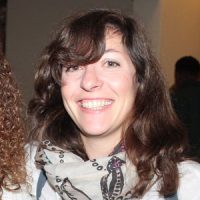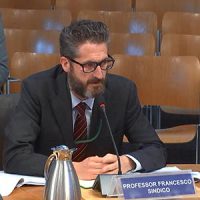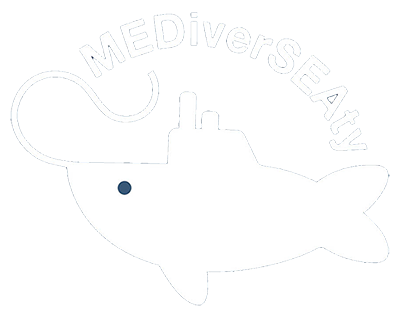MEDiverSEAty Advisory Board is composed by four External Experts shortlisted and voted by all Consortium members for their expertise in the fields of biodiversity, marine conservation, education and environmental law.
The Advisory Board provides a valuable referral point for the partners of the project and advises the Project Coordinator and all involved project’s Boards on the strategic scientific and training direction of the MEDiverSEAty project, providing critical feedback on all aspects of the network activities.

Evangelia Drakou

Gianluca Sarà

Francesco Sindico

Deborah Rowan Wright

Harokopio University of Athens (Greece)
Evangelia Drakou
Evangelia Drakou is Assistant Professor at the Geography Department of Harokopio University of Athens in Greece. Her expertise lies in mapping and assessment of Ecosystem Services within coastal and marine ecosystems, landscape and seascape ecology, with a special interest on transitional ecosystems such as the coastal zone, and small and medium islands. She previously worked for University of Twente (NL), University of Brest (FR), the Joint Research Center of the European Commission and Aristotle University of Thessaloniki, Greece.

University of Palermo (Italy)
Gianluca Sarà
Gianluca Sarà (PhD 1994) is a Full Professor of Ecology and coordinates the Ecology Laboratory at the University of Palermo, Italy. Together with his team, he explores the effects of variability induced by human-caused environmental change on the ecological responses of organisms in marine habitats and its influences on community dynamics, biodiversity and ecosystem functioning. He is the co-PI of SPOKE 1 – SEA (NBFC, PNRR Next Generation-EU), member of the Italian Ministry of Research (MUR), of the EU-Mission “Restore our Ocean and Waters by 2030” and CLUSTER 6 Italy for Horizon Europe (MUR) Expert Panels. He has been PI or co-PI of more than 15 international competitive projects (Interreg, Horizon EU, Australian Research Council, Hong Kong Research Grants Council, PRIN, PNRA). He spent more three years as a visiting fellow at Universities of Hong Kong (CN), Adelaide (AUS), Columbia (SC, USA), Kuala Terrenganu (MY) and Boston (MS, USA); is an Adjunct Full Professor (2024-2026) at the Ocean University (CN). He is the author of more than 220 in peer-reviewed scientific journals and of an Ecology textbook (Pusceddu, Sarà, Viaroli 2020 – Ecology. UTET).

University of Strathclyde (UK)
Francesco Sindico
Francesco Sindico is a Professor of International Environmental Law at the University of Strathclyde Law School. He is the Director of the Climate Change Legal Initiative (C2LI), the Co-Chair of the IUCN World Commission on Environmental Law Climate Change Specialist Group (where he leads the Islands, Nature and Renewable Energy Project (INREP) and the Co-Chair of the I International Water Resources Association (IWRA) Islands Water Congress. From September 2021 to April 2024 he was seconded to the Scottish Government where he led the Carbon Neutral Islands project.
Francesco thrives in multidisciplinary and multipartner projects and environments. He brings passion and competence to his work on International Environmental Law and is always keen to learn more and develop new partnerships. Francesco is an academic who believes universities need to work with non-academic partners and share results from their research also in ways that will deliver real impact on the ground.

Independent Researcher (UK)
Deborah Rowan Wright
Deborah Rowan Wright has worked in marine conservation for 20 years, specialising in ocean conservation policy. Her work on marine renewable energy, ocean governance reform, and conservation law has been published by among others, the International Whaling Commission, the Marine Biological Association, the Ecologist, and the University of Chicago Press.
Since 2012, Deborah has been calling for neglected international law to be enforced in order to protect the whole global ocean from human harm (and not only 30 percent of it). In her book ‘de’ she presents the case for 100 percent ocean protection and describes how to achieve it.
Based in Bristol in the UK, Deborah is currently working on the twin campaigns to pass a UN Declaration of Ocean Rights and for Ecocide to be recognized as the 5th International Crime.


